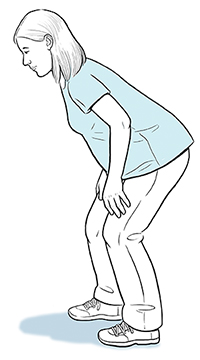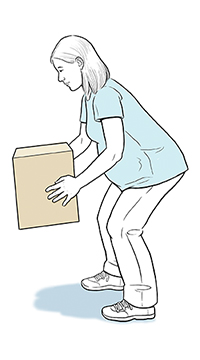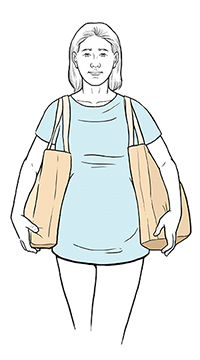Learning the correct ways to bend, lift, and carry objects may help relieve back strain. It'll also help you protect your back after your baby is born. Remember, if you’re having trouble protecting your back, it’s OK to ask the people around you for help.
Bending
To protect your back as you bend:
-
Put one foot slightly in front of the other. Bend at the knees and hips, pushing your hips backward. Keep your upper body as straight as you can.
-
Face forward. Try to keep your ears, shoulders, and hips in a line.
-
Don’t hold your breath.
Lifting
To lift a large object or a child:
-
Get as close to the load as you can. Face forward so that your ears and shoulders align.
-
Use the muscles in your thighs and buttocks to stand up. As you lift, tighten your stomach and pelvic floor muscles.
-
Don’t hold your breath. Don't twist.
Carrying
To carry a load safely:
-
Carry an object or child in front of you, not resting on your hip.
-
Break up a larger load into 2 or more smaller ones, if you can. Take more trips if you need to. When using bags, carry 1 on each side to help you keep your balance.
-
Try to tighten your stomach and pelvic floor muscles as you walk. This helps take weight off your back.




